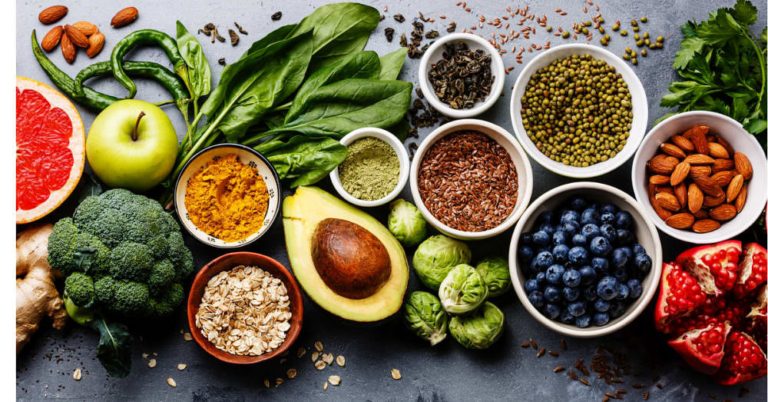Introduction
In recent years, the term “superfoods” has gained enormous popularity, attracting the attention of health-conscious individuals seeking the key to optimal health and longevity. Superfoods are often marketed as panaceas, offering various health benefits and promising to transform our well-being. But what lies beneath the surface? This blog will explore the truth behind the hype surrounding superfoods and separate fact from fiction.
Definition of Superfoods
The term “superfoods” refers to nutrient-dense foods that are purported to offer exceptional health benefits due to their high content of vitamins, minerals, antioxidants, and other bioactive compounds. They are often touted to prevent chronic disease, boost brain function, boost immunity, and promote weight loss, among other claims. Some commonly recognized superfoods include blueberries, kale, salmon, quinoa, and chia seeds.
The reality check
While it is true that certain foods have higher nutrient density and unique properties, the notion that a single food or small group of foods can alone provide all the nutrients necessary for optimal health is misleading. The concept of superfoods tends to oversimplify the complex nature of nutrition and the importance of a balanced diet.
The importance of variety
A single food cannot provide all the essential nutrients our body needs. Optimal health is best achieved through a varied and balanced diet that includes foods from different food groups. Each food brings its own set of nutrients and health benefits to the table. By incorporating a variety of nutrient-dense foods into our meals, we ensure that we get a wide range of vitamins, minerals and other essential compounds.
Read also: 15 Foods to Increase Your Blood Platelet Count
Marketing advertising
The rise of superfoods has been accompanied by aggressive marketing campaigns exaggerating their health benefits. Companies often capitalize on hype by promoting expensive products or exotic foods as the ultimate solution to health problems. It is important to approach these claims with skepticism and critically evaluate the scientific evidence behind them. While some superfoods offer health benefits, it is important to understand that these effects may vary depending on individual genetics, diet quality, and lifestyle factors.
The science behind superfoods
Scientific research has identified certain foods that consistently positively affect our well-being. Green leafy vegetables provide several vitamins, minerals and antioxidants that support overall health. Cruciferous vegetables such as broccoli, cabbage and cauliflower contain compounds that reduce the risk of cancer. Berries are packed with antioxidants and have shown potential benefits for brain health. Nuts and seeds provide omega fats, vitamin E, fiber and various micronutrients. Oily fish are a very good source of heart-healthy omega-3 fatty acids. Whole grains provide complex carbohydrates, fiber and essential nutrients. Legumes are rich in protein, fiber and vitamins.
However, it is important to note that the effects of superfoods can vary depending on a person’s overall diet and lifestyle. A diet high in processed foods, sugary drinks and unhealthy fats cannot be compensated for by the occasional superfood. The overall dietary pattern matters most.
The real superheroes:
Instead of fixating on specific superfoods, focus on the broader categories of foods that consistently demonstrate health benefits. Green leafy vegetables, cruciferous vegetables, berries, nuts, seeds, oily fish, whole grains and legumes have repeatedly positively impacted our well-being. Incorporate these foods into the diet to provide a variety of nutrients and bioactive compounds.
Beyond Superfoods:
While diet is vital to our overall health, there are other lifestyle factors to consider as well. Regular physical activity, adequate sleep, managing stress and avoiding smoking and excessive alcohol consumption are equally important. A holistic approach to wellness combines a balanced diet with an overall healthy lifestyle.
Read also: Top 14 Best Vitamin B12 Foods for Vegetarians in India
Conclusion:
While superfoods may have caught our attention with their enticing promises, it is necessary to approach the concept with a critical eye. No food has magical powers, and a varied, balanced diet is key to optimal health. Instead of buying into the marketing hype, let’s focus on incorporating a wide variety of nutrient-dense foods into our meals while prioritizing other aspects of a healthy lifestyle. In this way, we can truly nourish our bodies and promote long-term wellness.
